Tina Turner rose to fame alongside her ex-husband, Ike Turner, in what seemed to be a musical match made in heaven.
But it wasn’t until Turner fled the couple’s hotel room in 1976 and later revealed the reality of their relationship in a bombshell 1981 interview that the world knew about the toxic marriage the musical icon had survived.
“It was my relationship with Ike that made me most unhappy. At first, I had really been in love with him. Look what he’d done for me. But he was totally unpredictable,” Turner wrote in her 1986 autobiography, “I, Tina.”
After escaping the relationship, Turner went on to define herself as a solo artist and the Queen of Rock and Roll.
But the journey wasn’t an easy one.
Tina Turner detailed her life in a 1986 autobiography and 2018 memoir, alleging years of abuse from her ex-husband, Ike Turner. (Getty Images)
Turner, born Anna Mae Bullock, met Ike when she was a 16-year-old still in high school, and he was the leader of Kings of Rhythm, one of the first groups to introduce rock n’roll to the world with their song “Rocket 88.”
The young Turner sang B.B. King’s “You Know I Love You,” at a St. Louis nightclub, impressing Ike with her voice, and she quickly joined the group.
Their relationship remained platonic from 1957 to 1960, when they began an affair while Ike was still with his live-in girlfriend Lorraine Taylor.
In 1960, they recorded their first hit, “A Fool In Love,” and Turner expressed that she didn’t want to continue the relationship. According to her 1986 autobiography, “I, Tina,” Ike responded by hitting her in the head with a wooden shoe stretcher.
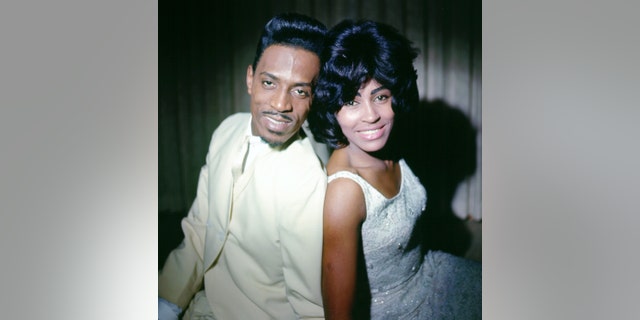
Ike and Tina Turner pose for a portrait in circa 1963. They married a year earlier in Tijuana. (Michael Ochs Archives)
She noted that was when he had first “instilled fear” in her during their relationship, and she decided to stay.
Turner later became pregnant and had the couple’s son, Ronnie, before later marrying Ike in Tijuana in 1962. The Turners became a blended family with their son, Ike’s two sons from Taylor and Turner’s son with Kings of Rhythm bandmember Raymond Hill, Craig.
The band eventually morphed into the Ike and Tina Turner Revue and continued touring and releasing singles like “I Idolize You,” “It’s Gonna Work Out Fine,” and “Poor Fool.”
In an excerpt from her 2018 memoir, “My Love Story: A Memoir,” Turner detailed the wedding day and night, saying she was hesitant to marry him, but felt she “didn’t have much choice. By the time he proposed, we had four children between us and a shared career as the Ike and Tina Turner Revue.”
She also wrote that “There was no point objecting — that would just make him mad, and might lead to a beating,” and Ike later took her to a “whorehouse” in Tijuana, writing, “I was miserable, on the verge of tears, but there was no escape. We couldn’t leave until Ike was ready, and he was having a fine old time.”
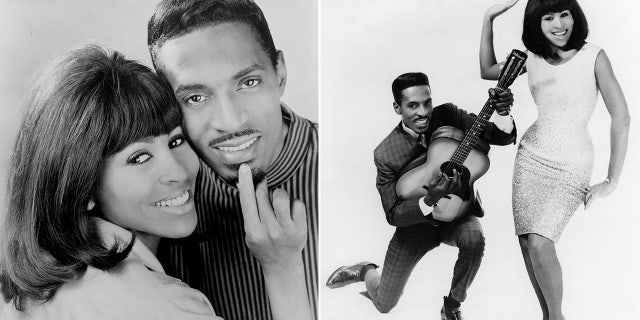
Ike and Tina Turner in photos from circa 1965. (Getty Images)
By the mid-1960s, Turner and Ike were touring and releasing singles and albums, all while he continued to abuse her. According to “My Love Story,” Ike gave her black eyes, broke her jaw, and poured hot coffee on her face, and routinely cheated on her with multiple women.
In a 2018 interview with The Times, Turner said, “There was violence because he had this fear that I was going to leave him. The other women, because I didn’t love him that way… The other women weren’t so bad, but it was the constant, constant ill-treatment.”
In 1966, Turner recorded “River Deep—Mountain High” with Phil Spector, and though the single wasn’t a hit in the United States, it did well in the United Kingdom and the Ike and Tina Turner revue toured with The Rolling Stones.
Still, Turner and Ike’s relationship was worsening and severely impacting Turner’s mental health.
In 1968, Turner attempted suicide by overdoing on pills, writing in her 2018 memoir, “I knew I should leave, but I had no money and didn’t know how to take the first step. At my lowest, I convinced myself that death was my only way out.”
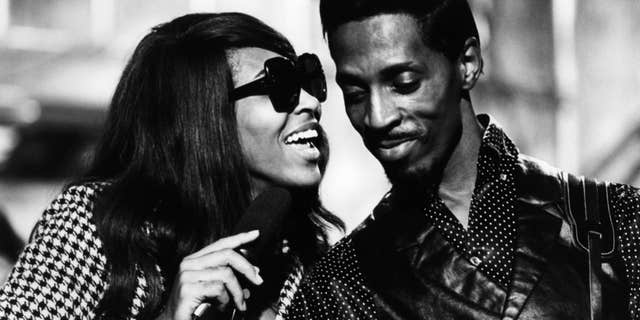
Tina Turner wrote in multiple memoirs about Ike abusing her, burning her with hot coffee, and routinely breaking her nose and leaving her with black eyes. ( Ivan Keeman/Redferns)
She detailed that Ike forced her back to work shortly after her hospitalization.
“I came out of the darkness believing that I was meant to survive,” she wrote. “I was here for a reason.”
The band finally found mainstream success in the early 1970s with “Proud Mary,” becoming their best-selling single and earning them a Grammy for best R&B vocal performance by a group.
However, by this time Ike was deep into a cocaine addiction that was burning a hole in his septum and giving him frequent nosebleeds, on top of altering his mood.
In her memoir, Turner wrote, “He used my nose as a punching bag so many times that I could taste blood running down my throat when I sang.”
“He broke my jaw. And I couldn’t remember what it was like not to have a black eye.”
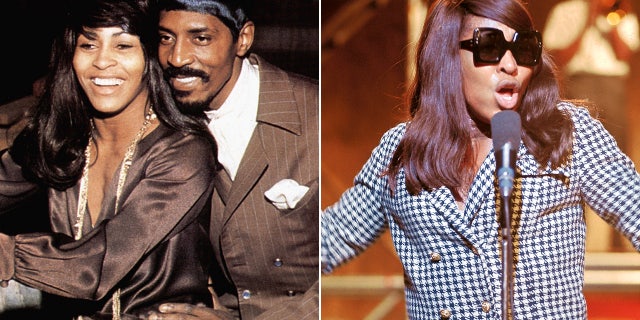
Tina Turner with Ike Turner in 1966. (Getty Images)
TINA TURNER MOURNED BY HOLLYWOOD AFTER ICON’S DEATH AT 83: ‘SIMPLY THE BEST’
By 1976, Turner reached her breaking point and left Ike.
As the band arrived in Dallas, Turner describes in her memoir getting in a fight with Ike on the way to their hotel, surprising him by arguing back, resulting in him hitting her in their limo on the way to the hotel.
She later asked herself that day, “‘What would happen if I just grabbed a bag and ran?’”
Turner decided to do just that and fled the hotel to a Ramada Inn, running across “several lanes of speeding traffic” with only “36 cents” in her pocket and her blood-stained clothes.
She filed for divorce that same year, and it was finalized later in 1978. Turner kept her stage name, two cars, jewelry, furs, while also taking on debts from missed concert dates and an IRS lien.
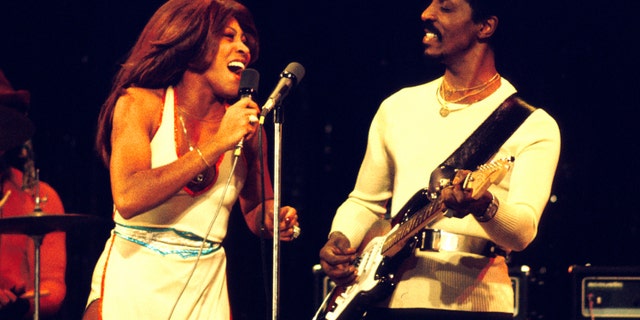
Tina and Ike Turner in 1974. By 1976, she decided to leave the relationship, fleeing their hotel room with only “36 cents” in her pocket. (Michael Ochs Archives)
In 1981, as she was struggling to build a solo career, Turner came forward about Ike’s abuse in a shocking interview with People magazine.
She told the outlet at the time that Ike was still finding ways to intimidate and threaten her, saying, “Gunshots were fired into my home, one of my girlfriends’ car was burned and there were threats. I’m not saying that Ike did it. I don’t think he would have hurt me, but he wanted to get close and scare me.”
Despite the shadow of Ike, Turner went on to release her 1984 album “Private Dancer,” which had several hits, including one of Turner’s now signature songs, “What’s Love Got to Do with It?”
Her comeback culminated with three Grammy wins in 1985, including record of the year for “What’s Love Got to Do with It?”
Turner’s success continued with albums, film appearances, and tours. In 1993, she received the biopic treatment in the film “What’s Love Got to Do with It?” based on her memoir, starring Angela Bassett in an Oscar-nominated performance.
The film was well-received, but Turner admitted she never watched the whole thing through.
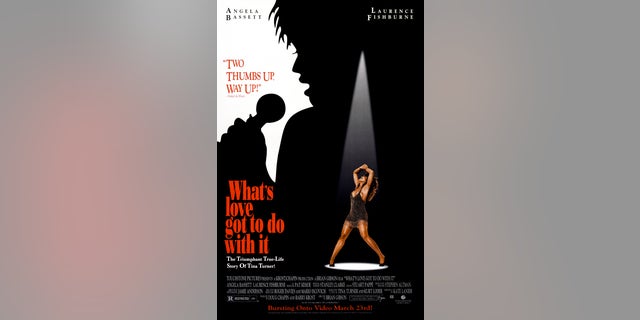
The movie poster for 1993’s ‘What’s Love Got to Do With it’ starring Laurence Fishburne and Angela Bassett as Ike and Tina Turner. ( John D. Kisch/Separate Cinema Archive)
TINA TURNER OPENS UP ABOUT CAREER, IKE AND LOSING SON TO SUICIDE
Ike routinely denied Turner’s allegations of abuse throughout the remainder of his life.
In a controversial 1985 interview with Spin magazine, Ike said, “It’s years ago that I had a temper. I don’t regret nothing I’ve ever done, absolutely nothing. Yeah, I hit her, but I didn’t hit her more than the average guy beats his wife.”
Later in his 2001 autobiography, “Taking Back My Name,” Ike wrote: “Sure, I’ve slapped Tina. There have been times when I punched her to the ground without thinking. But I never beat her.”
Ike died in 2007 of a cocaine overdose at age 76.
At the time, Turner released a statement through her spokesperson Michele Schweitzer that read, “Tina is aware that Ike passed away earlier today. She has not had any contact with him in 35 years. No further comment will be made.”

Ike Turner poses with his Grammy for Best Traditional Blues Album for “Risin’ With The Blues” in the press room at the 49th Annual Grammy Awards at the Staples Center on February 11, 2007, in Los Angeles, California. Ike would die later that year in December of a cocaine overdose. (ince Bucci)
CLICK HERE TO SIGN UP FOR THE ENTERTAINMENT NEWSLETTER
In her 2018 Times interview, Turner was asked if she could ever forgive Ike.
“As an old person, I have forgiven him, but it would not work with him,” she said. “He asked for one more tour with me, and I said, ‘No, absolutely not.’ Ike wasn’t someone you could forgive and allow him back in.”
She continued, “It’s all gone, all forgotten. I don’t know what the dreams are about. The dreams are still there — not the violence, the anger. I wonder if I’m still holding something in.”
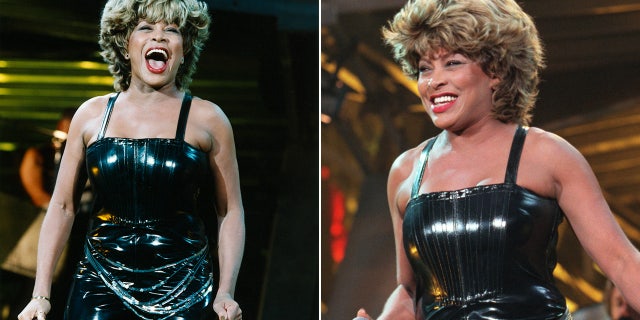
Tina Turner performing in 2000. She retired in 2009 to Switzerland, but later released her 2018 memoir, “My Love Story,” where she encouraged hope for those in abusive relationships. (Getty Images)
CLICK HERE TO GET THE FOX NEWS APP
Turner remains an inspiration as a musician and a woman who survived an abusive relationship. In her 2018 memoir, she encouraged others to find strength and hope for a better life.
“For anyone who’s in an abusive relationship, I say this: Nothing can be worse than where you are now. Nothing.”
“If you get up and leave, if you rise from the ashes, life will open up for you again.”
If you or someone you know is the victim of domestic abuse, please call the National Domestic Violence Hotline at 800-799-7233.
If you or someone you know is having thoughts of suicide, please contact the Suicide & Crisis Lifeline at 988 or 1-800-273-TALK (8255).